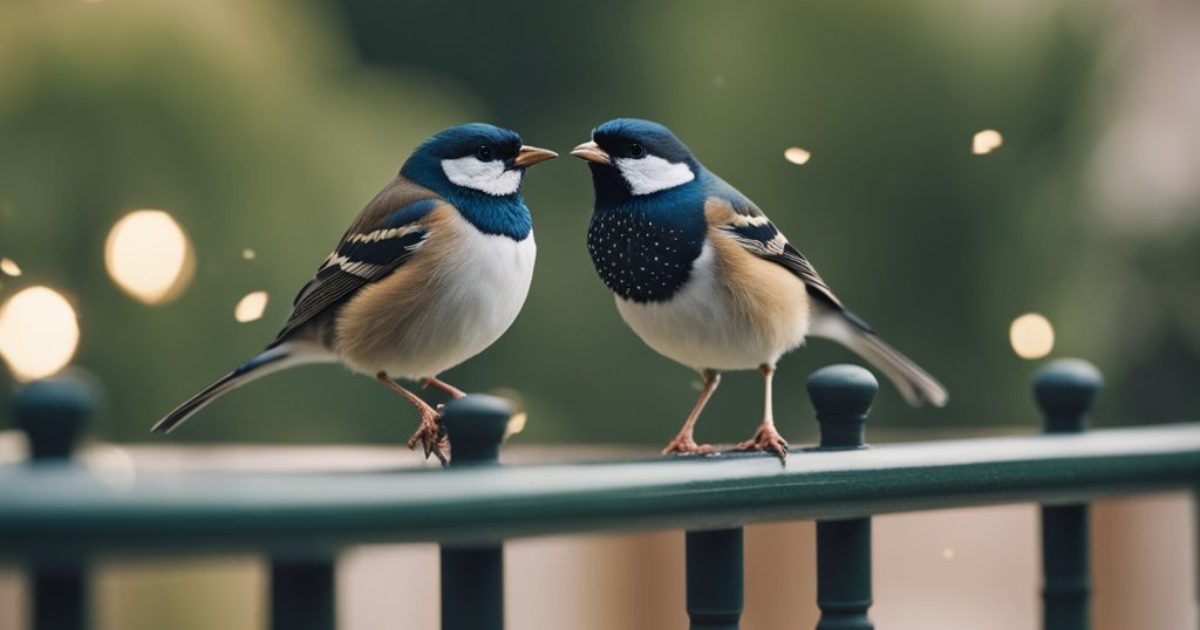Having a balcony is a luxurious addition to any home, providing a private outdoor space to relax, entertain, or simply enjoy the fresh air. However, one of the most frustrating problems balcony owners face is the constant presence of bird droppings. These unsightly and unhygienic messes can quickly ruin the appeal of your outdoor haven, not to mention the potential health risks they pose. Cleaning up after birds can be a tedious and unpleasant task, but leaving the droppings unchecked can lead to even bigger problems.
A clean and hygienic balcony is essential for creating a welcoming and enjoyable outdoor living space. Bird droppings not only look unsightly but can also harbor harmful bacteria and parasites, posing potential health risks to you and your family. Additionally, the acidic nature of bird droppings can damage and discolor surfaces over time, leading to costly repairs or replacements. Maintaining a bird-free balcony is crucial for preserving the beauty and functionality of your outdoor sanctuary.
Understanding the Reasons Behind Bird Activity on Your Balcony
To effectively deter birds from pooping on your balcony, it’s important to understand the underlying reasons that attract them to your outdoor space in the first place.
Availability of Food Sources
One of the primary reasons birds are drawn to balconies is the presence of food sources. Crumbs, spilled seeds, or even pet food left out can act as an irresistible lure for these feathered creatures. Additionally, if you have potted plants or a garden on your balcony, the insects and other small creatures that thrive in these environments can also serve as a food source for birds.
Nesting Sites
Birds are always on the lookout for safe and secure places to build their nests. Balconies can provide various nooks and crannies that make ideal nesting spots, such as ledges, corners, or even potted plants. Once a bird has established a nest on your balcony, it will become a regular visitor, increasing the likelihood of droppings and other messes.
Perching Spots
In addition to food sources and nesting sites, birds are attracted to balconies because they offer convenient perching spots. Railings, window sills, and ledges provide ideal resting places for birds, and as they perch, they are likely to leave droppings behind.
Preventive Measures to Deter Birds from Your Balcony
To keep your balcony free from bird droppings, it’s essential to implement a combination of preventive measures that address the root causes of bird activity.
Removing Food Sources
Keeping Your Balcony Clean
One of the most effective ways to deter birds from your balcony is to eliminate any potential food sources. Make sure to keep your balcony clean and free of crumbs, spilled seeds, or any other food debris that might attract birds. Sweep and clean your balcony regularly, and consider using a balcony cover or enclosure to prevent birds from accessing the area when it’s not in use.
Securing Trash Cans and Feeders
If you have outdoor trash cans or bird feeders on or near your balcony, ensure they are securely covered or stored away when not in use. Open trash cans and spilled birdseed can act as a buffet for birds, drawing them to your balcony and increasing the likelihood of droppings.
Deterring Nesting
Eliminating Potential Nesting Sites
To prevent birds from building nests on your balcony, it’s important to eliminate any potential nesting sites. This can include removing or blocking access to ledges, corners, or other nooks and crannies where birds might try to build their nests. You can also consider using nesting deterrents, such as plastic or metal spikes, to make certain areas less appealing for nesting.
Using Nesting Deterrents
In addition to eliminating potential nesting sites, you can also use nesting deterrents to discourage birds from attempting to build nests on your balcony. These deterrents can include plastic or metal spikes, netting, or other materials that make it difficult for birds to construct their nests.
Discouraging Perching
Installing Bird Spikes
Bird spikes are a popular and effective deterrent for discouraging birds from perching on your balcony. These spikes are typically made of plastic or metal and are installed on ledges, railings, and other surfaces where birds might try to perch. The sharp, protruding spikes make it uncomfortable for birds to land, encouraging them to seek alternative perching spots.
Using Reflective Surfaces
Birds are often deterred by reflective surfaces, as the unpredictable movements and flashes of light can startle them. You can install reflective tape, mirrors, or other shiny objects on your balcony to create a deterrent effect. However, be mindful of positioning these reflective surfaces in a way that doesn’t cause excessive glare or discomfort for you or your neighbors.
Employing Ultrasonic Devices
Ultrasonic devices emit high-frequency sounds that are designed to deter birds and other pests. These devices are generally considered humane and effective, as the sounds are not audible to humans but can be disruptive and unpleasant for birds. However, it’s important to note that some birds may become accustomed to the sounds over time, reducing the effectiveness of these devices.
Additional Strategies for Effective Bird Control
While the preventive measures mentioned above can go a long way in deterring birds from your balcony, you may need to employ additional strategies for more stubborn or persistent bird problems.
Implementing Physical Barriers
Netting
Installing netting or mesh over your balcony can provide a physical barrier that prevents birds from accessing the area. This solution is particularly effective if you have a persistent nesting problem or if other deterrents have proven ineffective. However, it’s important to ensure that the netting is securely installed and does not pose a risk of birds becoming entangled.
Screens
If you prefer a more permanent solution, you can consider installing screens or enclosures around your balcony. These structures not only prevent birds from entering but can also provide additional benefits, such as protection from insects and inclement weather.
Using Visual Deterrents
Scarecrows and Decoys
Visual deterrents, such as scarecrows or decoys, can be effective in scaring away birds from your balcony. These devices mimic the presence of predators or other threats, discouraging birds from nesting or perching in the area. However, it’s important to periodically move or rotate these deterrents to prevent birds from becoming accustomed to them.
Predator Silhouettes
Another visual deterrent option is the use of predator silhouettes, such as hawks or owls. These silhouettes can be placed on or around your balcony to create the illusion of a potential threat, deterring birds from approaching or nesting in the area.
Exploring Natural Repellents
Essential Oils
Some essential oils, such as peppermint, eucalyptus, or citrus oils, are known to have natural repellent properties against birds. You can dilute these oils in water and spray them around your balcony, or soak cotton balls in the oils and place them in strategic locations. However, it’s important to reapply these oils regularly, as their effects tend to diminish over time.
Garlic and Spices
Garlic and spices like cayenne pepper or chili powder can also act as natural bird repellents. You can sprinkle these around your balcony or create a homemade repellent spray by mixing them with water. However, be cautious when using these methods, as they can potentially stain or damage surfaces if used excessively.
Maintaining a Bird-Free Balcony
Keeping your balcony free from bird droppings and unwanted visitors requires ongoing effort and vigilance.
Regular Cleaning and Maintenance
Regular cleaning and maintenance of your balcony are essential to prevent the accumulation of food sources, nesting materials, and droppings that can attract birds. Sweeping, washing, and inspecting your balcony on a regular basis can help identify and address any potential bird attractants before they become a bigger problem.
Monitoring and Adjusting Strategies
It’s important to monitor the effectiveness of your bird deterrent strategies and make adjustments as needed. Birds can be persistent and may adapt to certain deterrents over time, so be prepared to try different methods or combinations of methods to maintain a bird-free balcony.
People Also Read:
- How Do Osprey Birds Use Their Zygopteran Hunting Techniques?
- Hawk vs Eagle: An Epic Battle in the Skies
Conclusion
Dealing with bird droppings on your balcony can be a frustrating and unpleasant experience, but with the right strategies and persistence, you can reclaim your outdoor haven. By understanding the reasons behind bird activity, implementing preventive measures, and exploring additional deterrents if needed, you can create an environment that discourages birds from nesting, perching, or pooping on your balcony. Remember, maintaining a clean and hygienic outdoor space not only enhances the aesthetics of your balcony but also safeguards your health and well-being. With a little effort and the right approach, you can enjoy your balcony without the hassle of constant bird droppings.
FAQs
Can birds really cause health problems with their droppings?
Yes, bird droppings can pose potential health risks, as they can harbor harmful bacteria, parasites, and viruses. Inhaling or coming into contact with dried bird droppings can lead to respiratory problems, allergic reactions, and even diseases like histoplasmosis or cryptococcosis. It’s important to exercise caution and take appropriate precautions when cleaning up bird droppings.
Do ultrasonic devices really work to deter birds?
Ultrasonic devices can be effective in deterring birds from your balcony, as the high-frequency sounds they emit are generally unpleasant and disruptive for birds. However, their effectiveness can vary based on the specific device and the type of birds you’re trying to deter. Some birds may also become accustomed to the sounds over time, reducing the device’s effectiveness.
Can I use chemical repellents to keep birds away?
While there are chemical repellents available on the market that claim to deter birds, it’s generally recommended to explore more natural and humane alternatives first. Chemical repellents can be harmful to the environment and may pose health risks to humans and pets if not used properly. Natural repellents like essential oils, garlic, and spices are often safer and more eco-friendly options.
How do I prevent birds from nesting on my balcony?
Preventing birds from nesting on your balcony involves eliminating potential nesting sites and using deterrents like nesting spikes, netting, or other materials that make it difficult for birds to construct their nests. Regularly inspecting your balcony for signs of nesting activity and addressing any potential nesting sites promptly is also crucial.
Can I just leave my balcony doors and windows closed to keep birds out?
While keeping your balcony doors and windows closed can help prevent birds from entering the area, it’s not a long-term solution. Birds can still perch on railings, ledges, or other surfaces on your balcony and leave droppings behind. Additionally, leaving your balcony constantly closed defeats the purpose of having an outdoor living space. A combination of preventive measures and deterrents is more effective in keeping your balcony bird-free.

